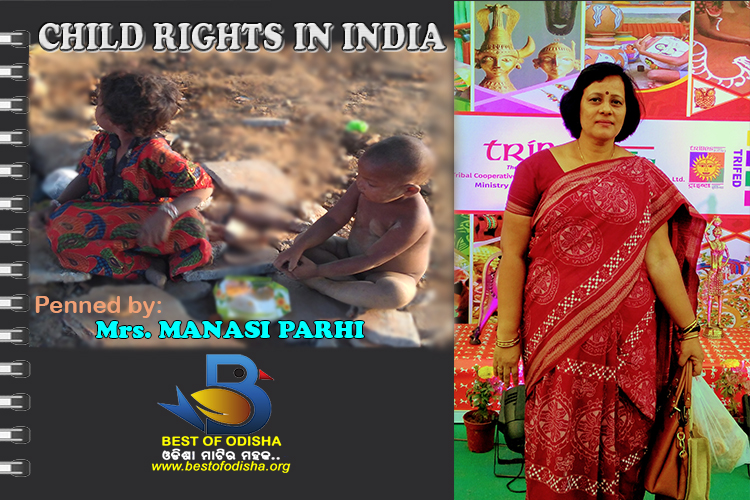Children are considered as a pious version of God who are seen as a symbol of joy, happiness and innocence. They are the future of a nation. The children need special protection because they are among the most vulnerable members of the society. Right through history children have been abused and exploited. It is moral duty of everyone to ensure that the childhood of a child is protected and not marred. Children must rely on adults for the nurture and guidance they need to grow towards independence. When adult caregiver cannot meet children’s, needs,it is up to the state as primary duty bearer to find an alternative in the best interest of the child. Children are neither property of their parents nor a helpless objects of society. They are protected by their Rights.Child Rights are fundamental freedoms and inherent Rights of all human beings below the age of 18.These Rights apply to every Child irrespective of the race,colour,sex,creed,or other status.
Child is an indispensable asset of any society. Child is the inspiration and aspiration of tomorrow. Today’s child is tomorrow’s citizen. Children as a class, constitute the weakest, vulnerable and the defenceless section of the human society. The UNO and ILO provided protection to the children through their conventions. The Indian constitution also has provided certain rights to children in India. Article 21-A which put an obligation on the state to provide free and compulsory education to children in the age group of 6-14 years. Furthermore, the Article 51-A(k) making it a fundamental duty on parents to provide education to children falling in the age group of 6-14 years. Article 24 of the constitution of India provides that “No child below the age of 14 years shall be employed to work in any Factory or Mine or engaged in any other hazardous sector. Article 39(e) proclaims that the state shall endeavour it’s policy towards securing that the health strengths of the tender age of children are not forced by economic necessity to enter avocations unsuited to their age or strength. Article 39(f)enjoins that childhood and youth are to be protected against exploitation, against moral and material abandonment. Article-45 of the constitution states that the state shall endeavour to provide early childhood care and education for all the children until they complete the age of six years.
~ Mrs. Manasi Parhi~
4











